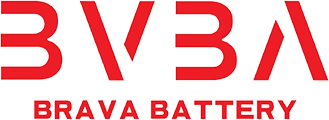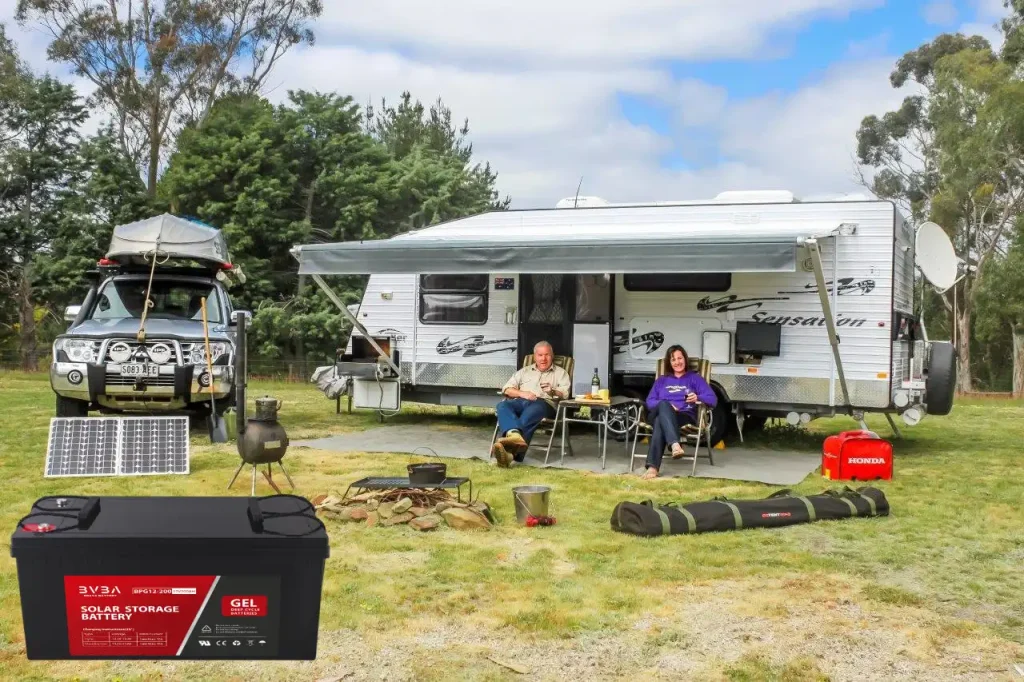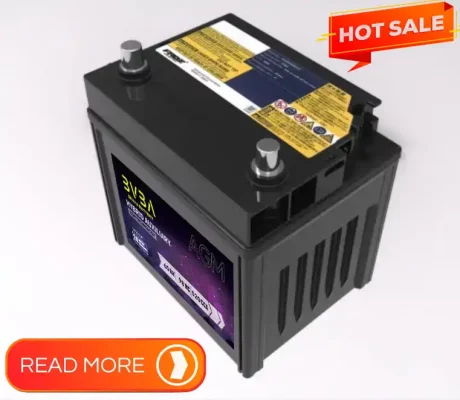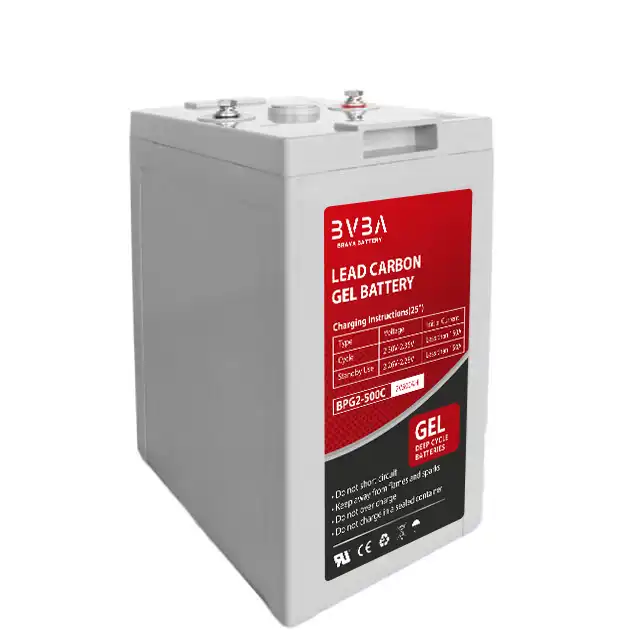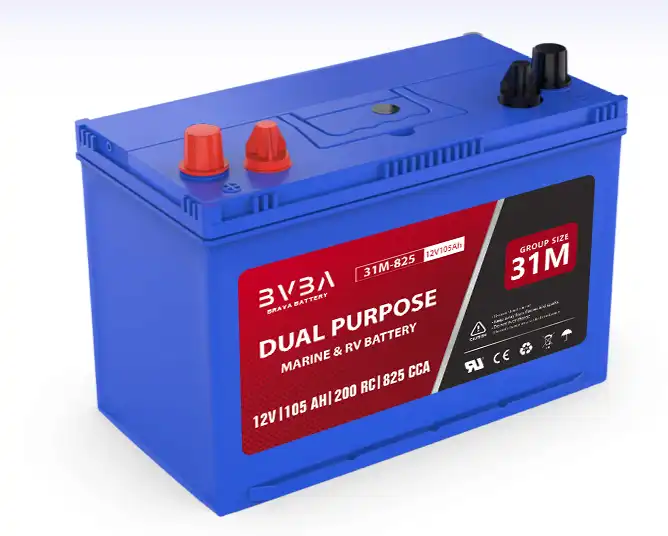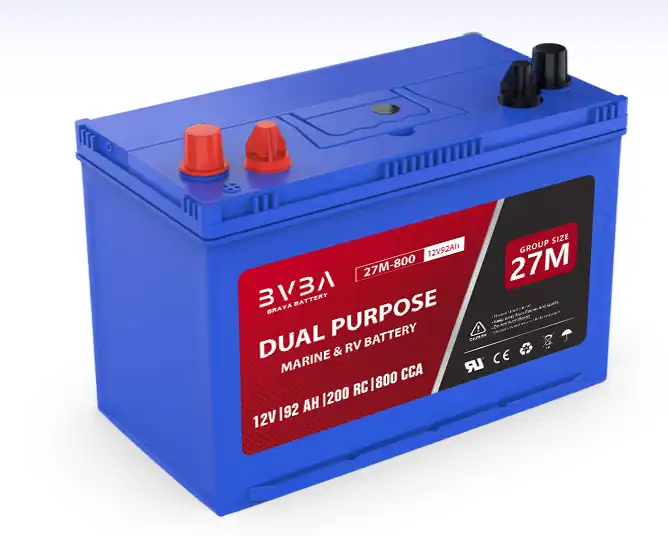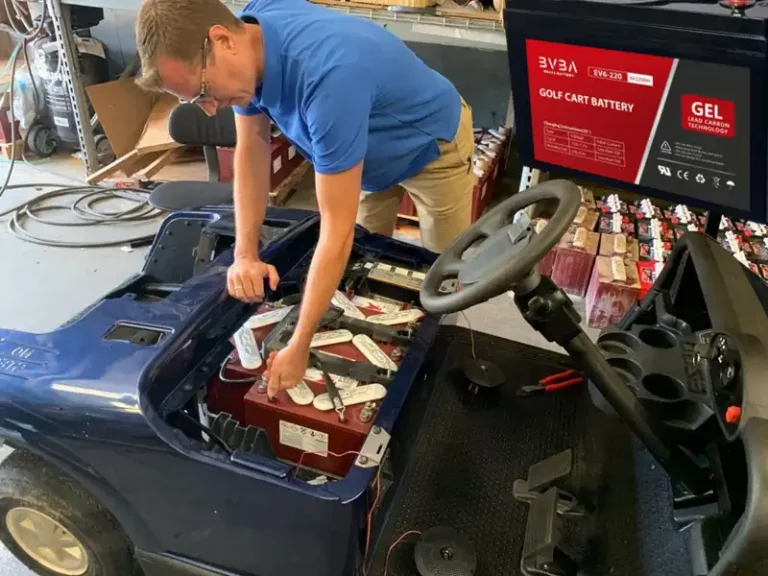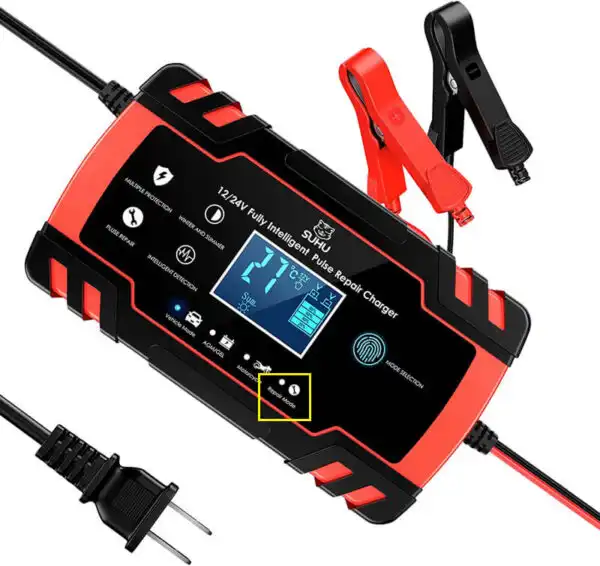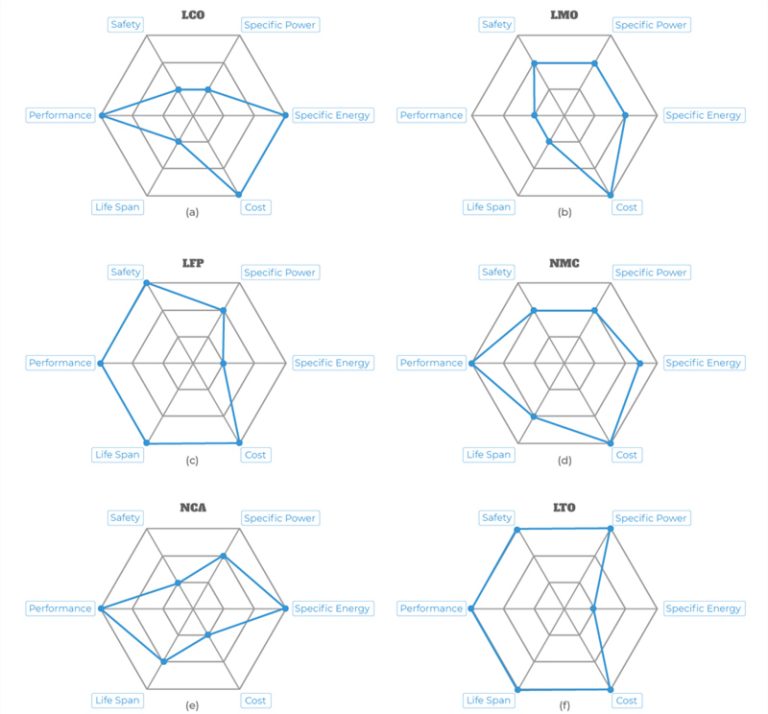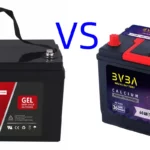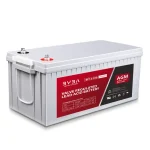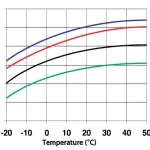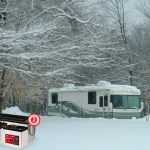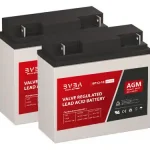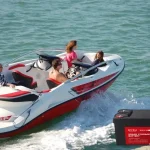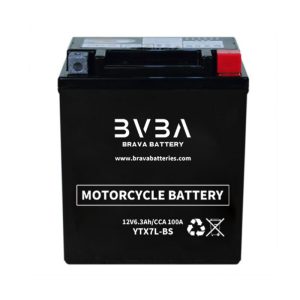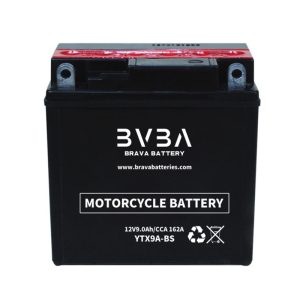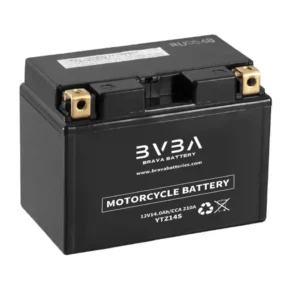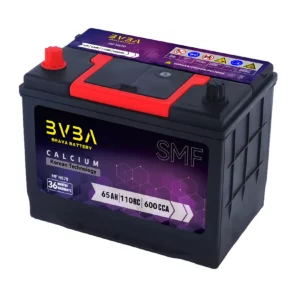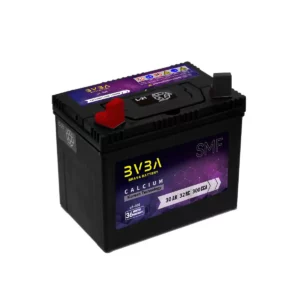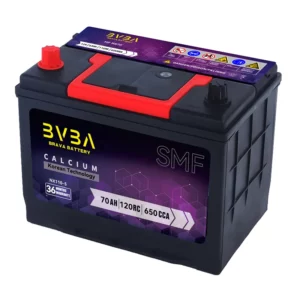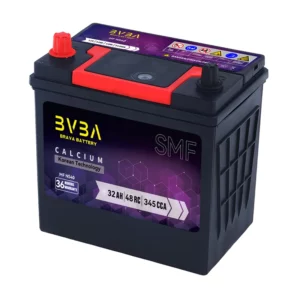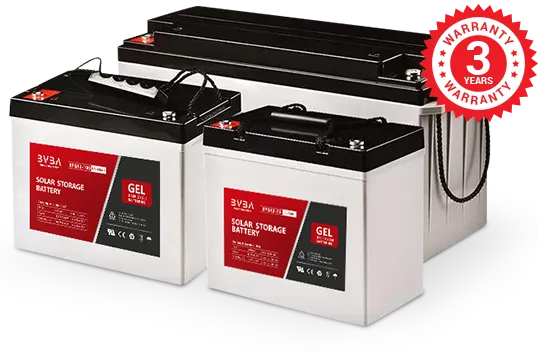When you’re shopping for 12v deep cycle batteries, it’s easy to get overwhelmed with the different terms and promises that many manufacturers use to market their product. What is a marine battery? Or a VRLA? But choosing a battery isn’t difficult if you know what to look for. Here are some things to take into consideration:
Deep Cycle Batteries Types
There are two categories of deep cycle batteries: flooded and valve-regulated (VRLA). Each has certain advantages and disadvantages. Here’s a brief overview of each:
Flooded Deep Cycle Battery
Flooded deep cycle batteries, also known as wet cell batteries, are characterized by their liquid electrolyte component, which is composed of sulfuric acid and distilled water. Users should regularly open the battery and perform routine maintenance, which includes cleaning and “watering,” or adding distilled water to replace the liquid that evaporates during operation. All deep cycle batteries have thick plates of the active material, which is lead in the case of lead acid batteries, which allow for sustained power generation and deep discharge.
Valve-Regulated Lead Acid Battery
Valve-regulated batteries were created to offer a maintenance-free option for deep cycle applications. There are two main types of VRLA batteries: absorbed glass mat (AGM) and gel batteries. Each uses a different form of electrolyte; for AGM, a fine boron-silicate mat is soaked in electrolyte to around 95% saturation, and evaporated gases are recaptured to eliminate the need for watering. In gel batteries, sulfuric acid is mixed with a gelling agent to form a thick, almost stiff substance. Neither type of VRLA battery will leak electrolyte if the casing is cracked or punctured, which makes them attractive for applications in which the battery will face rough conditions.
Lithium Batteries
LiFePO4 batteries are tough, damage-resistant, waterproof, and deliver 12 volts at a constant discharge rate. If you love camping, you’ll be impressed by the long lasting power of these batteries.
Weight & Size

Weight and size are important considerations if you intend to use your deep cycle battery on a watercraft or RV, where you’ll need to run several different electronic applications for extended periods of time.A lithium-ion deep cycle battery is lightweight and energy-dense compared to its lead-acid counterpart. A lighter, smaller battery gives you more flexibility when considering your application’s total weight and balance.
But don’t be deceived: Although lithium-ion is smaller and lighter, its high energy efficiency means it performs better than lead-acid (and in all instances, better) at a fraction of the size.
Charging
A lithium-ion deep cycle battery charges faster than a lead-acid battery. For applications where charge time is critical for use – think all-terrain vehicles (ATV), marine power, and other recreational applications – it’s important to be able to charge and get going as quickly as possible. Lithium allows you to recharge two to three times faster than lead-acid.
Lithium batteries also charge to full in one session, making the charging process easy. Lead-acid batteries must be charged over multiple sessions to reach full capacity, requiring active maintenance.
Life Span & Reliability
Perhaps the greatest advantage of the lithium-ion deep cycle battery is its long, low-maintenance life span. A quality lithium-ion battery doesn’t need to be refilled with water and typically lasts owners up to 10 years, several times the life span of the average lead-acid battery.
Lithium-ion batteries also don’t lose trivial amounts of energy to self-discharge when they’re put in storage. If you want to throw the battery in storage for the winter and bring it out again when it’s time to hit the waves or the slopes, you won’t need to waste time nursing it back to health.
More importantly, if you need a backup battery to power an emergency generator, lithium-ion is the reliable choice. With lead-acid alternatives, you risk the possibility of a drained backup battery in times of need.
To ensure quality performance and optimal life span, it’s important that the lithium deep cycle battery you choose is right-sized for your application. Don’t pull the trigger on a new battery until you consult an expert capable of assessing your application’s specifications and recommending the best, most cost-effective option.
APPLICATION
Perhaps the most important consideration when choosing a deep cycle battery is what you intend to use it for. Here are some situations that make a difference in the type of deep cycle battery you choose:
Stationary or Level Equipment
If you’re looking for a deep cycle battery for a vehicle that remains level or a stationary application, a flooded deep cycle battery may be your best bet. Flooded batteries are the most common type of deep cycle battery, and as such they are generally easier to find and more cost-effective than other types of batteries. Because they use a liquid electrolyte, however, they can only be used in an upright position. They should also be used in applications which allow easy access for charging, watering, and other maintenance.
Examples: forklifts, renewable energy storage
Variable Conditions
In applications where conditions such as temperature and required power draw vary, a VRLA battery such as an AGM battery may be the best option. Because VRLA batteries are sealed, there is less chance of damage or weathering of the inside components, which helps to ensure a longer lifespan and better performance. VRLA batteries can operate in any orientation, not just upright like flooded batteries, so they’re ideal for situations where they might frequently tip or are installed sideways.
Examples: boats, RVs
Maintenance Capabilities
In addition, VRLA batteries may be better suited in situations where regular maintenance is difficult. All deep cycle batteries need to be charged according to manufacturer specifications, so some amount of maintenance is always required, but if you’re not able to water your battery frequently for whatever reason, you should consider buying a VRLA.
BATTERY QUALITY
This consideration is not just exclusive to deep cycle batteries — all batteries and applications benefit from a high-quality manufacturing process. But because of their specialized applications and long lifespan, deep cycle batteries can entail a significant investment, which may cause buyers to consider a less expensive, lower quality product. For best performance and return on investment, we strongly recommend higher-quality, more respected brands of deep cycle batteries.
Choosing a deep cycle battery can be a confusing process. Start by understanding the different types of batteries and which are best suited for your intended applications, and you’ll be on the right track. Download our complete guide to deep cycle batteries to learn more:
12V Deep Cycle Batteries
When looking for 12V deep cycle batteries system such as a 12V deep cycle marine battery or 12V deep cycle solar battery, you now know what you need to look for.
Depth of discharge ratings will affect cycle life and available energy. This lets you know how many batteries to buy. Choosing lead-acid is much cheaper than lithium-ion, but there’s still a lot of variation in the type of lead-acid battery to look at.
Deep Cycle Batteries Lead acid Battery Lithium Batteries
